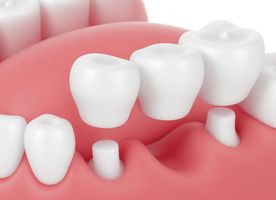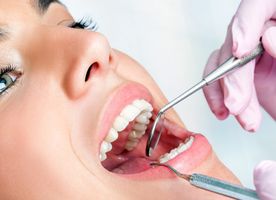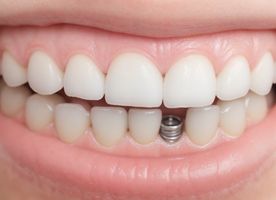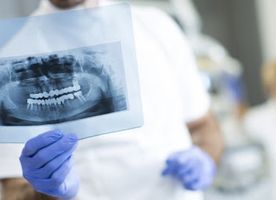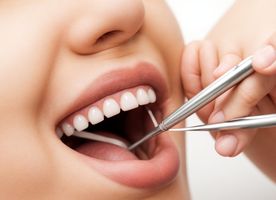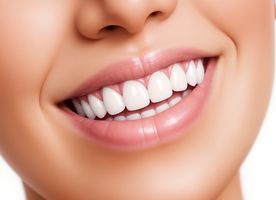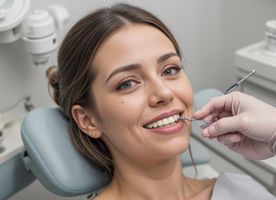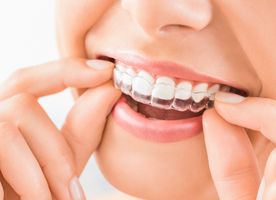Dental Crown in Rayong
Search and Compare the Best Clinics and Doctors at the Lowest Prices for Dental Crown in Rayong













































































































































No Time?
Tell us what you're looking for and we'll reach out to the top clinics all at once
What does a Dental Crown Procedure Involve?
You may need several appointments to get a dental crown. During the procedure, you will be given a local anesthetic. Your dentist will reshape the tooth receiving the crown to make room for the crown, but if your tooth is badly decayed or damaged, your dentist will use filling material so the tooth can support the crown. After your tooth is reshaped, a paste or putty will be used to make an impression of the tooth to receive the crown. Sometimes, your dentist may use a digital scanner instead of a paste to do this. Then, your dentist sends the crown to a lab that makes the crown, which may take several days or weeks.
When the crown is ready, your dentist cements the crown to your tooth. With a same-day procedure, the crown is made in your doctor’s office and you only need to wait for about 1 to 2 hours until the crown is made. A properly fitted crown will feel comfortable, and you will be able to chew normally. Regular check-ups and good oral hygiene habits are essential to ensure the longevity of your dental crown.
How Long Should I Stay in Rayong for a Dental Crown Procedure?
Typically, the Dental Crown necessitates a pair of appointments at the dental clinic, separated by a few weeks. In the initial visit, your dentist will ready your tooth and install a short-term crown. The definitive crown generally takes about two to three weeks of wait time for fitting. Thus, if you contemplate undertaking a Dental Crown within Rayong, preparing for a three-week stay is wise. However, this timespan isn't set in stone and can deviate based upon the unique case and the dentist's guidance. Hence, it's definitely ideal to communicate with your selected clinic to gain a more precise timeline and coordinate your journey suitably.
What's the Recovery Time for Dental Crown Procedures?
Anticipate some sensitivity and discomfort for a couple of days after undertaking a Dental Crown. The majority of patients can revert to daily routines right after the procedure. Notwithstanding, staying away from tough or adhesive foods for some days is crucial to avert any potential harm to your new dental covering. Embrace a soft oral cleanliness regimen during your healing phase to safeguard the surroundings of your newly fitted crown. If you encounter discomfort as you bite, reach out to your dentist for necessary adjustments to the crown.
What sort of Aftercare is Required for Dental Crown Procedures in Rayong?
Taking care of your mouth after a Dental Crown means keeping your teeth clean, going to the dentist regularly, and eating a balanced diet. Brushing your teeth twice a day and flossing often will help keep your new crown and other teeth clean and healthy. To avoid damaging your new crown, don't chew hard food or ice (especially if you have a porcelain crown), and avoid grinding or clenching your teeth. Regular dentist appointments can check if your crown is working well and spot any problems early.
What's the Success Rate of Dental Crown Procedures in Rayong?
The Dental Crown is known to be an effective method boasting high effectiveness - dental crowns' overall survival timeframe may span anywhere from 5 to 15 years. Several factors like the nature of the crown material, quality of dental procedure, the individual's oral cleanliness habits, and the person's broad health and lifestyle conditions play a significant role.
The daily upkeep of these dental crowns significantly impacts their longevity and effectiveness. This embraces thorough brushing and flossing, frequent dental examinations, and preventive dentistry. Individuals who uphold stellar oral hygiene standards and heed their dentist's advice about crown upkeep are more likely to experience better success with their dental crowns. It's also crucial to emphasize that lifestyle actions like grinding teeth or biting on hard substances can harm the crown, shortening its useful life.
Are there Alternatives to Dental Crown Procedures in Rayong?
The Dental Crown is deemed one of the most effective methods for restoring the form and function of a damaged tooth. But it's important to keep in mind that this is not the only solution.The choice of therapy depends on the patient's dental health, personal preferences, and financial situation. Remember that it's crucial to have a lengthy discussion with your dentist about the wide range of alternatives available. With respect to your particular situation and preference, other potential options can be investigated such as these:
- Dental fillings can be one such option. For teeth with minor to moderate damage, such as those with cavities or minor fractures, this therapy is ideal.
- Dental veneers might also be a fantastic choice. These thin covers intended to cover the teeth's frontal surfaces are essential for enhancing their appearance and protecting them from damage. When compared to dental crowns, veneers have a higher likelihood of maintaining their natural appearance and resisting fading over time.
- Dental implants are another excellent choice to take into account. Replacement teeth might be held in these metal frameworks that are surgically inserted into the jawbone beneath your gums. Dental implants can be a long-term option for people who are coping with tooth loss.
This information has been accurately sourced and verified by a medical professional for its accuracy, however, we strongly recommend you to consult with your doctor before pursuing medical procedures overseas.





